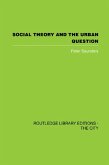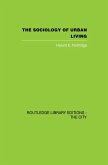Dieser Download kann aus rechtlichen Gründen nur mit Rechnungsadresse in A, B, BG, CY, CZ, D, DK, EW, E, FIN, F, GR, HR, H, IRL, I, LT, L, LR, M, NL, PL, P, R, S, SLO, SK ausgeliefert werden.
-Professor Santanu Das, All Souls College, Oxford, UK
In her sophisticated and fully contextualised decolonial analysis of First World War novels, Anna Branach-Kallas reveals how contemporary authors' evocation of minoritized experiences of war and empire helps us to see afresh the traumatic legacies of the conflict on those who fought it. This book will be of great interest to researchers and students in both literature and history departments.
-Professor Alison Fell, University of Liverpool, UK
Combining First World War studies and postcolonial studies, this book makes a vital contribution to countering Eurocentric memories of the Great War. It provides gripping analyses of centenary novels that expose the racial ideologies which have made the experience of coloured colonial soldiers a sadly neglected history.
-Professor Martin Löschnigg, University of Graz, Austria
Much as the literature of the First World War has prospered in numerous countries for decades, writers have, to date, largely overlooked contributions by soldiers of colour. Providentially, their previous commitments are now analyzed in two French novels, one British novel, one novel from South Africa and one woman's Pakistani novel, all of whom, according to Anna Branach-Kallas, share an intention to decolonize their memories of the First World War.
-Dr Donna Coates, Associate Professor Emerita, University of Calgary, Canada









